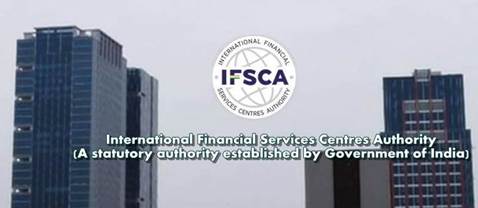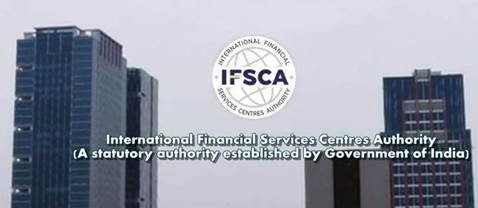Description

Disclaimer: Copyright infringement not intended.
Context
- The International Financial Services Centres Authority (IFSCA) and the Council on Energy, Environment and Water (CEEW) have signed a Memorandum of Understanding (MoU) for mutual assistance and cooperation in the area of sustainable finance.
About IFSCA
- The IFSCA is a statutory authority established under the International Financial Services Centres Authority Act, 2019 (“IFSCA Act”) with a mandate to develop and regulate the financial products, financial services, and financial institutions in the International Financial Services Centres (‘IFSC’).
- GIFT-IFSC is the maiden IFSC in India. The IFSCA aims to develop a strong global connect and focus on the needs of the Indian economy as well as to serve as an international financial platform for the entire region.
Background
- Prior to the establishment of IFSCA, multiple regulators viz. SEBI, Pension Fund Regulatory and Development Authority ("PFRDA"), IRDAI and RBI regulated the business in IFSCs.
- However, in order to facilitate the functioning of the businesses in IFSC, inter-regulatory coordination vis-à-vis existing regulations governing businesses in IFSC was quintessential, as a result, IFSCA was established by the GOI to achieve the desired goal.
.jpg)
Powers of IFSCA
- Section 13 of the IFSC Act vests broad powers with IFSCA to regulate financial products, financial services and financial institutions.
- The provision empowers IFSCA to exercise all powers exercisable by appropriate regulators SEBI, RBI, PFRDA and IRDAI vis-à-vis regulating securities, banking and insurance sector in India, respectively.
- From regulating the functioning of stock exchanges and brokers in IFSC to laying down the prudential regulatory requirements for IFSC Banking Units ("IBU") or setting up of Alternative Investment Funds ("AIFs") in IFSC are some of the important powers of IFSCA.
Composition of IFSCA
- IFSCA will consist of a Chairperson, who shall be a whole-time member appointed by the GoI.
- It will also consist of one member each to be nominated by RBI, SEBI, IRDAI and PFRDA, 2 officials of the Ministry of Finance as nominated by the GoI and 2 other members appointed by the GoI on the recommendation of a Selection Committee. These members may be appointed either as a whole-time or as part-time members as the GoI may deem fit.
Funding sources of IFSCA
- GoI can grant sums of money to the IFSCA as it may deem fit.
- Additionally, a fund by the name of the International Financial Services Centres Authority Fund ("IFSCA Fund") is constituted and all grants, fees, charges and sums (as decided by the GoI) received by the Authority are credited to the IFSCA Fund.
Functions of IFSCA
- To advance and manage the financial products,8 financial services and financial institutions in the ifscs;
- To manage financial services, financial institutions and financial products in an IFSC which have been authorised prior to the commencement of IFSCA Act by any regulator of IFSC e. RBI, SEBI etc.; and
- To manage the financial services, finance institutions and financial products in an IFSC as the GoI may notify from time to time.
.jpg)
In July 2022, IFSCA issued a circular on "Directions on business in foreign currency at International Financial Services Centres" and prescribed that all transactions in IFSCs shall be undertaken in a freely convertible currency and only via bank transfers. It also allowed financial institutions to undertake capital account transactions (excluding acceptance of deposits) and current account transactions with a person resident in India or a person resident outside India or another financial institution in any freely convertible foreign currency subject to the directions, if any, issued by the IFSCA from time to time.
About CEEW
- The Council on Energy, Environment and Water (CEEW) is one of Asia’s leading not-for-profit policy research institutions.
- The Council uses data, integrated analysis, and strategic outreach to explain – and change – the use, reuse, and misuse of resources.
- It prides itself on the independence of its high-quality research, develops partnerships with public and private institutions, and engages with the wider public.
- In 2021, CEEW once again featured extensively across ten categories in the 2020 Global Go To Think Tank Index Report.
- The Council has also been consistently ranked among the world’s top climate change think tanks.
https://www.pib.gov.in/PressReleasePage.aspx?PRID=1885510













